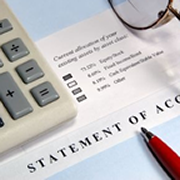Understanding Escheatment
All states have rules governing so-called "abandoned property." Financial institutions, including brokerage firms, banks, and transfer agencies, are required to report personal property that has been abandoned and then remit that property to the state.
Your mutual fund account may be considered abandoned if certain criteria are met, such as mail being returned as undeliverable or a certain number of years elapsing since there was any activity on the account. Once property meets the abandoned property requirements in that client's state of residence, it must be turned over to the state in a process known as "escheatment."
Before the account is escheated, we will make a diligent effort to locate the owner in order to avoid having to escheat the funds. However, once the funds are escheated to the state, it is up to the client to reclaim that property by working with his/her state's division of unclaimed property.
What Are the Requirements for Unclaimed Property?
As indicated, the rules vary by state, but there are a two that you should be familiar with:
- RPO: RPO stands for "returned post office." When we send an account statement or other correspondence to a shareholder and it gets returned to us as undeliverable more than once, that account is flagged "RPO". Depending on your state's rules, that may be enough to have the account considered abandoned.
- Inactivity/Date-of-last-Contact: Each state has its own rules for what constitutes "contact." Additionally, some states determine property is abandoned after 3 years with no contact; others wait 5 years. If you have not initiated some type of contact within the timeframe established by your state, your account will be considered abandoned. At Firsthand, the following are some examples that are considered contact:
- A call to 1.888.884.2675 (Shareholder Services)
- A trade (buy, sell, or exchange)
- Correspondence sent to Shareholder Services about the account (addressed to the Fund at P.O. Box 9836, Providence, RI 02940)
- Logging into your online account (click here to learn how to sign up for online access to your account)
Some states use RPO as the only criterion for escheatment, some use inactivity, and others use a combination of both. Regardless, we believe the best practice is to maintain regular activity on your account, even if this means just phoning Shareholder Services once a year to ask for your account balance.
What Happens If My Account Is Marked Abandoned?
Once an account is flagged as meeting the state's abandoned property requirements, an attempt will be made to contact the owner of the account in order to avoid the escheatment process. If we are unable to do so, the account is then considered abandoned and the assets are escheated to the state. Once this happens, it is up to you to contact the relevant agency in your state to start the process of getting the assets back. Typically the states hold these funds as cash (i.e., they will sell any mutual fund shares they receive as part of the escheatment process), and owners will not receive interest or dividends.
If you believe you have property that was escheated to the state, you can visit this website http://www.naupa.org/ to locate the agency you will need to contact in order to reclaim your funds. The Securities and Exchange Commission website also offers some basic information on the escheatment process: https://www.sec.gov/answers/escheat.htm.

